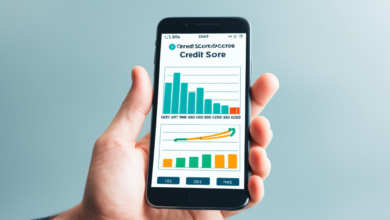Tips on Hedging Inflation | money management
Investors have, historically, been constantly concerned about geopolitical uncertainty, macro environmental risks or pandemics. With inflation at the highest level since 1982, these concerns take on increased legitimacy due to the real consequences for the economy, as companies will have to pay more for employees and raw materials.
Ultimately, increased inflation will pass to the Federal Reserve because one of their mandates is to keep inflation at a steady level. In our view, we expect inflation to pick up for the rest of the year, but look for a deceleration in price growth over the summer. Investors are worried about the impact this will have on their portfolios. The question to ask yourself is, how do you protect clients’ portfolios while the Federal Reserve combats inflation by raising interest rates?
One of the more simple ways to hedge against inflation is with Treasury Inflation-Protected Securities (TIPS), a type of US Treasury security whose principal value is indexed by the rate of inflation. Essentially, when inflation rises, the principal value of TIPS is adjusted, but if deflation occurs the principal value is adjusted lower. While TIPS have fixed coupon rates, their coupon payments vary based on changes in their original value and the rate of inflation. It is important to note that TIPS are significantly more volatile than cash, especially during market corrections. While TIPS are worth considering as an inflation hedge, there is a risk that they could underperform traditional US Treasuries if actual inflation does not meet high expectations. Inflation-resistant fixed income investments include Treasury inflation-protected securities (TIPS), short-term bonds, high-yield bonds and international bonds.
Today, dividends matter more than ever. The value side of the market is finally catching the attention of investors as they begin to focus on companies that have been overlooked for the better part of the last decade. These fundamentally valuable companies appear quite compelling because of their pricing power, relatively affordable price point, and potentially strong dividend payouts. Keep in mind that dividends have accounted for about 40% of the stock market’s total returns since 1930. During times of high inflation, companies that can increase their dividends will not only outperform the broader market but will reduce the volatility of a stock’s total return. Dividends can be reinvested throughout the year; Thus, allowing investors to take advantage of declining prices in the stock. These fundamentally valuable companies provide investors with reassurance and peace of mind during challenging times, as their profitability and ability to generate additional free cash flow will remain intact. Ideally, you want to invest in a company before the price of the dividend increases. We expect companies to cut their dividends in 2020 to restart and grow them as the economy and their businesses improve.
Inflation is always important from the point of view of financial planning as we have to take into account the long term financial objectives of the customers relative to their purchasing power. Ultimately, the higher the rate of inflation, the higher the return required by customers to maintain the purchasing power of their assets. Staying ahead of inflation is a key component of investment and financial planning. The best way to achieve this objective is to have a balanced portfolio that is diversified across asset classes and includes inflation-resistant investments. This will not only enhance client returns but also reduce the overall risk and volatility of the portfolio.
John Harris is the Managing Director, and Michael Ungar is the Vice President, both at Coral Gables Trust Company.






